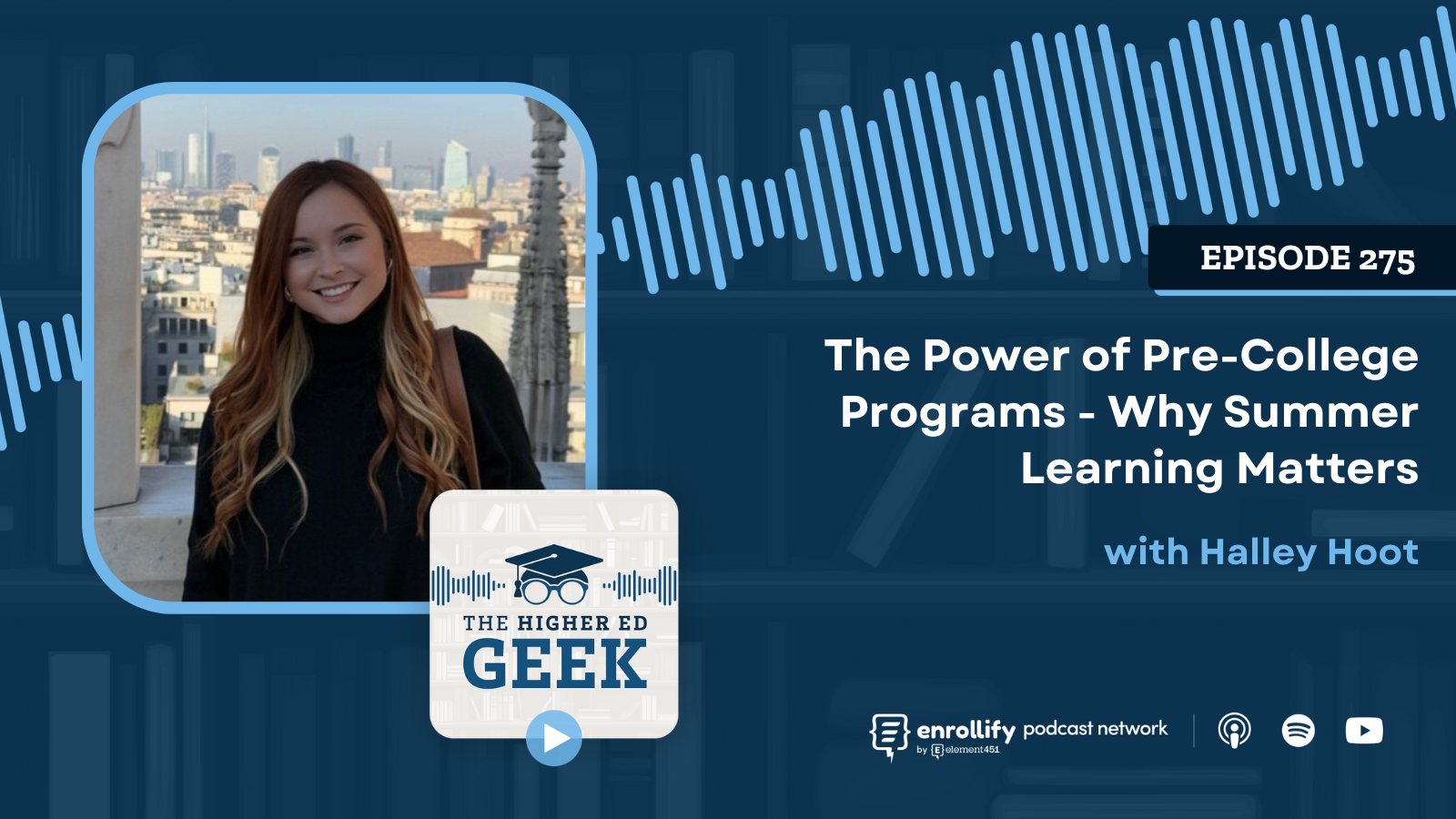About the Episode
Episode Summary
In this episode we explore the transformative shift in search engine optimization (SEO) with the advent of Google's Search Generative Experience (SGE). We dive into how generative AI is revolutionizing the way we interact with search engines, moving from keyword-based queries to more conversational, semantic searches. This change is not only altering SEO strategies but also reshaping the landscape of online content discovery, particularly affecting marketers, institutions, and the broader field of higher education. The discussion highlights the need for content to be more nuanced, focusing on user intent and context, and the increasing importance of social signals in determining a website's relevance and authority. We try to unpack the implications of these advancements for website traffic, organic search visibility, and the overall user experience in the digital age.
Let's dive into the insights shared by the experts in these episodes, offering actionable advice for higher education marketers looking to navigate the changing terrain of digital marketing.
The AI Revolution in Web Content Creation
Generative AI is not just about automating content creation; it's about unlocking new potentials for personalized and relevant content at scale. For higher education institutions, this means the ability to tailor program pages, blog posts, and even course descriptions to align closely with prospective students' interests and search behaviors.
In Talking Tactic's episode titled "Using Generative AI To Write Search Engine Optimized Web Content" Dayana Kibilds interviews Patrick Kelly, who shares his experience using generative AI to produce 70 SEO-optimized program pages for Harper College. By leveraging generative AI tools like Jasper AI, Kelly's team achieved a significant increase in web traffic, demonstrating the potential of AI to streamline content creation and enhance online visibility.
Additionally, Harper College's use of labor market data on its program pages shows how AI can make content more dynamic and timely. This method improves SEO by making the information more relevant and also makes the programs more appealing to potential students. By using generative AI to add the latest industry trends and job statistics, colleges can effectively show the value and return on investment (ROI) of their programs, which is a major concern for students and their families today.
Adapting to the New SEO Landscape
Generation AI's episode titled, "The Future of Online Search: From Keywords to Conversations" explores how generative AI is changing the SEO game, with hosts Ardis Kadiu and JC Bonilla discussing the shift from keyword-based to conversational search queries.
As Google introduces its Search Generative Experience (SGE), the emphasis on user intent and context over mere keyword density becomes crucial. This shift necessitates a more nuanced content strategy that aligns with how people are increasingly using natural language to search for information online.
To thrive in this new SEO landscape, institutions must also prioritize the technical aspects of their web presence, ensuring that their sites are not only rich in valuable content but also fast, mobile-friendly, and accessible. As generative AI begins to play a more significant role in shaping search results, the technical foundation of university websites will become increasingly critical to their ability to rank well and attract organic traffic.
This holistic approach to SEO, which balances high-quality, conversational content with robust technical performance, will define the winners and losers in the competitive field of higher education marketing in the years to come.
Strategies for Higher Education Marketers
- Embrace Generative AI for Content Creation: Like Patrick Kelly's approach at Harper College, utilize AI tools to efficiently generate informative and engaging content that meets SEO objectives. There are tons of resources on how to best utilize tools like ChatGPT, Jasper.ai, and more online.
- Focus on Intent and Context: Move beyond keywords to create content that answers prospective students' specific questions and needs, reflecting the conversational nature of modern search queries.
- Enhance User Experience: Ensure your website's content is not only informative but also accessible and user-friendly, as Google's SGE prioritizes sites that offer a superior user experience.
- Integrate Social Signals: Recognize the growing importance of social media in driving web traffic and building brand authority. Develop strategies that leverage social platforms to amplify your content's reach and relevance.















